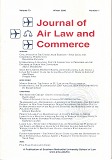FAQ #10: Why must the Earth-Moon space line and settlement be open to all paying passengers regardless of nationality?
International law clearly requires that opening the space frontier must "benefit all mankind" and that there must be "access to all areas of celestial bodies".
The 1967 Outer Space Treaty in its very first article, says, "The exploration and use of outer space, including the moon and other celestial bodies, shall be carried out for the benefit and in the interests of all countries ... and shall be the province of all mankind. ...and there shall be free access to all areas of celestial bodies."
Article XII of the Treaty says: "All stations, installations, equipment and space vehicles on the moon and other celestial bodies shall be open to representatives of other States Parties to the Treaty on a basis of reciprocity. Such representatives shall give reasonable advance notice of a projected visit, in order that appropriate consultations may be held and that maximum precautions may be taken to assure safety and to avoid interference with normal operations in the facility to be visited." All settlements and property owners will have to accept that rule unless the Treaty is ever changed.
Establishing a space line and settlement open to all paying passengers, regardless of nationality, would certainly benefit all mankind, thus making it both necessary and sufficient to meet that very important condition of international law.
The question of compliance with the access requirement of the Outer Space Treaty upsets a lot of people, on both sides of the issue. Greg Nemitz (former "National Marketing Director" of Dennis Hope's "Lunar Embassy") calls the originator of the Lunar Land Claims Recognition idea (Alan Wasser) a Communist for acceding to the access requirement, because it means property owners can't have an absolute right to keep everyone else off their land. Wayne White, however, insists the plan fails because it does not go far enough to comply with that same "free access" rule. The Institute, of course, thinks the best compromise possible has been made until and unless the Treaty is revised.

Questions & Answers about Lunar Land Claims Recognition
Note: The first 25 FAQs below are reprinted from the Space Settlement Initiative ![]() website.
website.
What is the real purpose of enacting a Lunar land claims recognition law?
What does international law say about private property ownership in space?
Can there be property ownership without national sovereignty?
What if other nations refuse to recognize land claims in space?
Why not allow smaller, limited land claims for easier steps than settlement?
Could lunar land really be worth enough money to make a difference?
What conditions should the US set for recognition of a claim?
How much land should a settlement be able to claim... and why?
Are the weaknesses and compromises in this plan likely to be permanent?
Could other sources of revenue be enough without land claims recognition?
What effect would this have on NASA and the aerospace companies?
More FAQs
The FAQs above cover basic questions about Lunar Land Claims Recognition. The following questions address more advanced issues.
If we really went to the Moon in 1969, why aren't we there now?
What were the assumptions before the Outer Space Treaty, (e.g. Robert Heinlein)?
Will changing how NASA works bring the taxpayers back on board?
Could this law force the US to recognize a foreign government's Lunar land claim?
Would Article VI of the Outer Space Treaty prohibit Lunar land claims recognition?
| Back from Why must the Earth-Moon space line... to Frequently Asked Questions (FAQs) Back from Why must the Earth-Moon space line... to the Space Settlement Institute home page |




